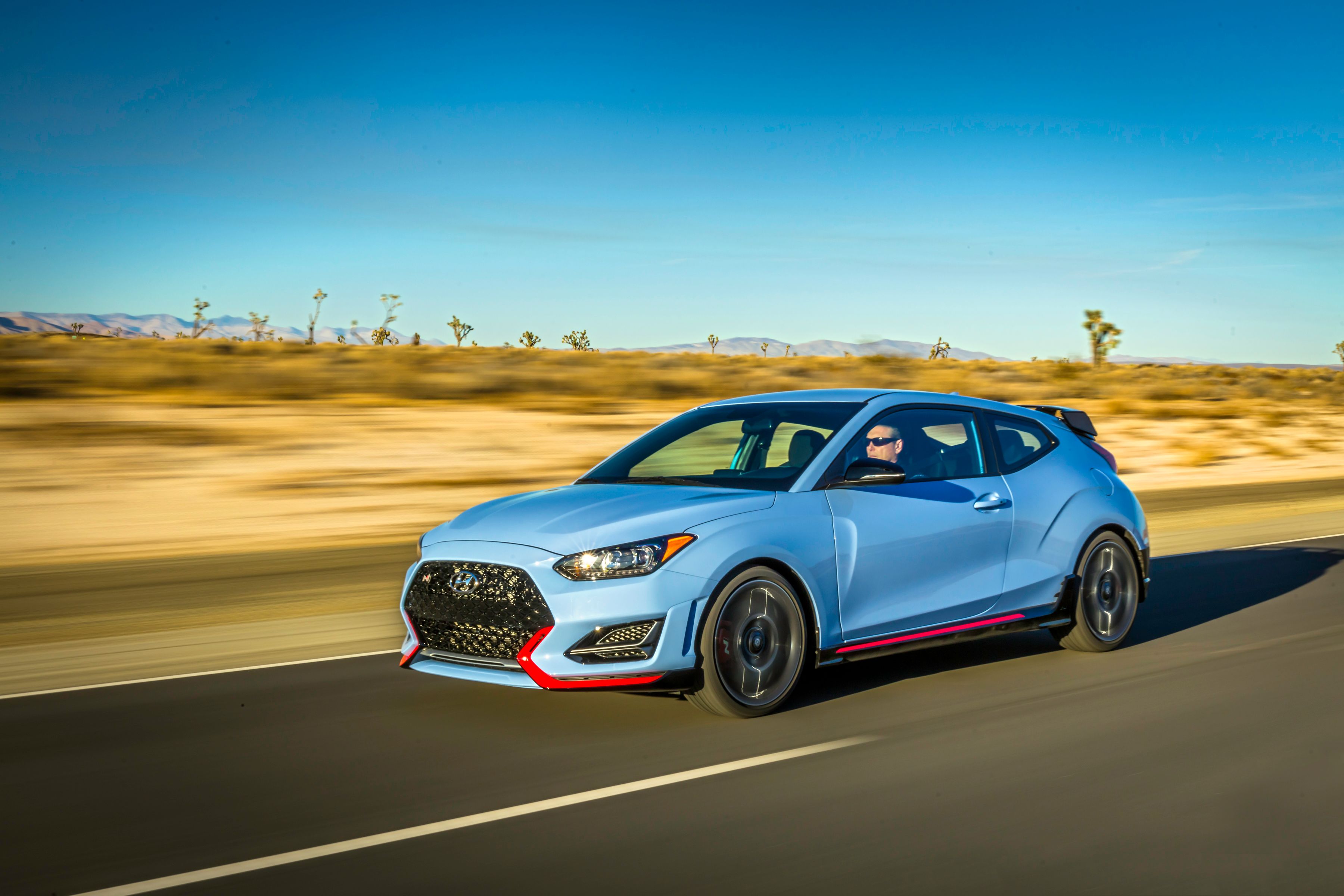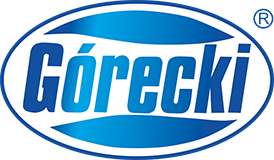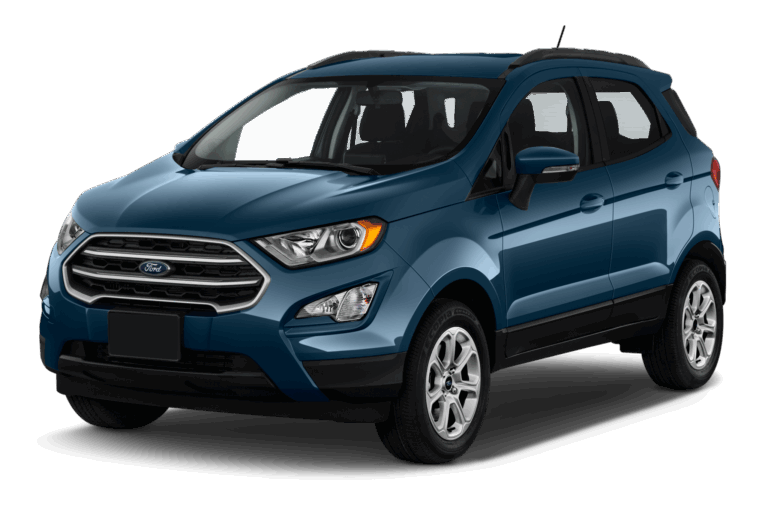Affordable Car Brands: Your Guide to Smart Car Ownership
Affordable Car Brands: Your Guide to Smart Car Ownership cars.truckstrend.com
In today’s dynamic economic landscape, the concept of "affordable" has never been more relevant, especially when it comes to significant purchases like a car. For many, a vehicle isn’t just a luxury; it’s a necessity for commuting, family life, and daily errands. However, navigating the vast automotive market to find a reliable, feature-rich, and budget-friendly option can feel overwhelming. This comprehensive guide aims to demystify the world of affordable car brands, helping you make an informed decision that aligns with both your financial goals and your driving needs.
An "affordable car brand" isn’t merely about the lowest sticker price. It encompasses a broader spectrum of value, including low initial purchase cost, excellent fuel efficiency, reasonable insurance premiums, manageable maintenance expenses, and a strong resale value. These brands are masters at delivering maximum utility and comfort without unnecessary frills, making quality transportation accessible to a wider demographic – from first-time buyers and students to growing families and budget-conscious professionals. Choosing an affordable car brand isn’t about compromise; it’s about smart, sustainable car ownership that prioritizes long-term financial well-being and practical utility.
Affordable Car Brands: Your Guide to Smart Car Ownership
Understanding "Affordable": Beyond the Initial Price Tag
When evaluating a car’s affordability, it’s crucial to look beyond just the manufacturer’s suggested retail price (MSRP). The true cost of owning a vehicle, often referred to as the Total Cost of Ownership (TCO), includes several other significant factors:
- Fuel Efficiency: A car with excellent miles per gallon (MPG) can save you hundreds, if not thousands, of dollars annually, especially with fluctuating fuel prices.
- Insurance Costs: Vehicles with lower repair costs, higher safety ratings, and less powerful engines typically incur lower insurance premiums.
- Maintenance and Repair: Parts availability, labor costs, and the overall reliability of a brand significantly impact long-term maintenance expenses. Brands known for reliability often have lower unscheduled repair costs.
- Depreciation: How much value a car loses over time is a crucial factor. While all cars depreciate, some affordable brands hold their value remarkably well, meaning you get more back when you eventually sell or trade in.
- Financing Costs: The interest rate on your car loan can add a substantial amount to the total price. Affordable car prices often mean lower loan amounts, reducing interest paid over the loan term.

By considering these factors, you gain a more holistic understanding of a car’s true affordability, ensuring that your budget remains intact not just at the point of sale, but throughout your ownership period.
Key Players in the Affordable Car Market: Top Brands to Consider
Several automotive brands have consistently delivered exceptional value, reliability, and features at accessible price points. These manufacturers have honed their craft in building practical, durable, and increasingly stylish vehicles that don’t break the bank.
- Hyundai: Once known for budget cars, Hyundai has dramatically transformed its lineup, offering stylish designs, advanced technology, impressive warranties (one of the best in the industry), and excellent fuel economy across models like the Elantra, Kona, and Venue. They offer fantastic value for money.
- Kia: A sister company to Hyundai, Kia mirrors its sibling’s commitment to value. With striking designs, competitive features, and the same robust warranty, models like the Forte, Soul, and Seltos consistently rank high in affordability and owner satisfaction.
- Honda: Renowned for their bulletproof reliability, strong resale value, and fuel efficiency, Honda vehicles like the Civic and HR-V are perennial favorites. While their initial prices might be slightly higher than some direct competitors, their low TCO and longevity make them incredibly affordable in the long run.
- Toyota: Similar to Honda, Toyota is synonymous with reliability and durability. Models such as the Corolla, Yaris (where available), and C-HR offer outstanding fuel economy, low maintenance costs, and legendary longevity, ensuring high value retention.
- Mazda: Mazda has carved a niche by offering vehicles that blend affordability with a premium feel and engaging driving dynamics. Models like the Mazda3 and CX-30 provide sophisticated interiors, advanced safety features, and excellent fuel efficiency, often punching above their price class.
- Subaru: While often associated with all-wheel drive (standard on most models), Subaru also delivers strong value, particularly for those seeking versatility and safety. The Impreza and Crosstrek offer excellent residual values and robust build quality.
- Mitsubishi: Mitsubishi focuses on practical, value-oriented vehicles, often coming with a very attractive price tag and a long warranty. The Mirage and Outlander Sport are among the most budget-friendly options on the market, offering basic transportation with a strong warranty backup.
- Nissan: With models like the Versa and Kicks, Nissan offers some of the lowest starting prices in their respective segments. They provide practical features and decent fuel economy, making them attractive for those on a tight budget.
- Chevrolet (select models): While Chevrolet has a wide range, specific models like the Spark and Trax offer compelling affordability, especially for urban dwellers or those needing a compact, efficient vehicle.
- Ford (select models): Ford has shifted its focus, but models like the Maverick compact pickup and certain Escape trims can still represent excellent value, particularly for their utility and feature sets.


Benefits of Choosing an Affordable Car Brand
Opting for a vehicle from an affordable car brand comes with a multitude of advantages that extend far beyond the initial purchase:
- Significant Financial Savings: The most obvious benefit is the lower upfront cost, which can mean smaller loan payments, a reduced down payment, or the ability to pay cash. This frees up capital for other investments or necessities.
- Lower Insurance Premiums: Generally, less expensive cars are cheaper to insure because their repair costs are lower, and they are less attractive targets for theft.
- Reduced Depreciation: While all cars lose value, luxury vehicles often experience a steeper depreciation curve. Affordable cars tend to hold their value relatively well, especially those with a reputation for reliability, meaning less financial loss over time.
- Simpler Maintenance and Repair: Parts for popular affordable models are typically widely available and less expensive than those for luxury or niche vehicles. Mechanics are also more familiar with common models, leading to potentially lower labor costs.
- Excellent for First-Time Buyers: Affordable cars provide an accessible entry point into vehicle ownership, allowing individuals to build credit and gain driving experience without excessive financial burden.
- Modern Features at a Value Price: Gone are the days when "affordable" meant "bare-bones." Today, many budget-friendly cars come standard with essential safety features (like airbags, ABS, stability control) and increasingly offer desirable tech like touchscreens, smartphone integration (Apple CarPlay/Android Auto), and even advanced driver-assistance systems (ADAS) as standard or affordable options.
- Peace of Mind with Warranties: Many affordable brands, particularly Hyundai and Kia, offer industry-leading warranties (e.g., 5-year/60,000-mile basic and 10-year/100,000-mile powertrain), providing long-term protection against unexpected repairs.
Important Considerations When Buying an Affordable Car
While the benefits are clear, making the right choice requires careful consideration:
- Thorough Research is Paramount: Don’t just pick the cheapest option. Dive into reviews from reputable sources like Consumer Reports, J.D. Power, and Edmunds. Look at long-term reliability studies and owner satisfaction surveys.
- Prioritize Reliability Ratings: A low purchase price is meaningless if the car constantly breaks down. Focus on brands and models known for their dependability. This ties directly into lower TCO.
- Evaluate Safety Features: Modern safety technology has become incredibly accessible. Look for cars with strong crash test ratings (NHTSA, IIHS) and active safety features like automatic emergency braking, lane-keeping assist, and blind-spot monitoring, even if they are optional.
- Assess Resale Value: Some affordable brands, like Honda and Toyota, are legendary for holding their value. This means a larger return on your investment when you decide to upgrade.
- Understand the Warranty: Beyond the length, know what the warranty covers. A long powertrain warranty is excellent, but a comprehensive bumper-to-bumper warranty offers more immediate protection.
- Fuel Economy is a Long-Term Investment: While many affordable cars are fuel-efficient, compare specific MPG figures. Even a few MPG difference can add up significantly over years of ownership.
- Test Drive Multiple Models: Never buy a car without test driving it extensively. Pay attention to comfort, visibility, acceleration, braking, and how it handles different road conditions. Ensure it fits your lifestyle.
- Consider Certified Pre-Owned (CPO) Options: A CPO vehicle from an affordable brand can offer the best of both worlds: a lower price point than new, but with the added peace of mind of a manufacturer-backed warranty and a rigorous inspection process.
Tips for Maximizing Your Savings with an Affordable Car
Even when focusing on affordable brands, there are strategies to enhance your savings:
- Negotiate the Price: Don’t be afraid to haggle. Research the average selling price in your area using resources like Kelley Blue Book (KBB) or Edmunds.
- Consider Base Models or Lower Trims: Often, the most significant value is found in the base or mid-tier trims. These usually include all essential features without the added cost of luxury amenities you might not need.
- Shop During Sales Events: End-of-month, end-of-quarter, and end-of-year sales (e.g., Black Friday, holiday sales) often bring the best deals as dealerships try to meet quotas.
- Look at Previous Model Years: If a new model year has just been released, you can often find significant discounts on the outgoing model year, even if it’s still new on the lot.
- Explore Financing Options: Don’t automatically take the dealer’s financing. Shop around with banks and credit unions for the best interest rates before you go to the dealership.
- Budget for Insurance: Get insurance quotes before you buy the car. Different models can have vastly different insurance costs.
- Maintain Your Vehicle Religiously: Sticking to the manufacturer’s recommended maintenance schedule prevents minor issues from becoming costly major repairs, preserving your car’s longevity and value.
Addressing Common Challenges and Misconceptions
Despite their undeniable value, affordable car brands sometimes face misconceptions:
- Myth: "Affordable means low quality or unreliable."
- Reality: This is largely outdated. Modern manufacturing techniques, global supply chains, and intense competition have pushed all brands, including affordable ones, to meet high standards of quality, reliability, and safety. Brands like Toyota, Honda, Hyundai, and Kia consistently rank among the most reliable.
- Myth: "Lack of features or a ‘bare-bones’ experience."
- Reality: While they may not have every cutting-edge gadget found in luxury vehicles, affordable cars today come remarkably well-equipped. Standard features often include power windows/locks, air conditioning, infotainment systems with Bluetooth, and essential safety systems. Many even offer advanced driver aids as optional packages.
- Challenge: Perceived lack of "prestige."
- Solution: If prestige is a concern, consider what truly matters. For most, a reliable, efficient, and safe vehicle that fits their budget is far more valuable than a luxury badge. Focus on the practical benefits and the smart financial decision you’re making.
- Challenge: Limited customization options compared to premium brands.
- Solution: While customization might be less extensive, most affordable models offer a range of trim levels and popular option packages that cater to common preferences. Aftermarket accessories can also personalize your vehicle.
By understanding these points, buyers can move past outdated stereotypes and appreciate the genuine value and quality that affordable car brands offer.
Comparative Overview of Leading Affordable Car Brands
Here’s a table summarizing key information about some of the top affordable car brands, highlighting what makes them stand out:
| Brand Name | Typical New Price Range (Approx.) | Key Strengths / Value Proposition | Popular Models (Examples) | Standard Warranty (Basic/Powertrain) |
|---|---|---|---|---|
| Hyundai | $18,000 – $35,000+ | Excellent warranty, stylish design, good features for price, strong reliability. | Elantra, Kona, Venue, Tucson | 5-yr/60k mi / 10-yr/100k mi |
| Kia | $18,000 – $35,000+ | Industry-leading warranty, bold styling, strong tech integration, great value. | Forte, Soul, Seltos, Sportage | 5-yr/60k mi / 10-yr/100k mi |
| Honda | $22,000 – $38,000+ | Legendary reliability, high resale value, fuel efficiency, refined driving. | Civic, HR-V, CR-V | 3-yr/36k mi / 5-yr/60k mi |
| Toyota | $21,000 – $38,000+ | Unmatched reliability, low maintenance costs, excellent resale value, safety. | Corolla, Camry, RAV4, C-HR | 3-yr/36k mi / 5-yr/60k mi |
| Mazda | $23,000 – $37,000+ | Premium feel for the price, engaging driving dynamics, stylish design, good fuel economy. | Mazda3, CX-30, CX-5 | 3-yr/36k mi / 5-yr/60k mi |
| Subaru | $24,000 – $38,000+ | Standard AWD (most models), high safety ratings, good resale, adventurous spirit. | Impreza, Crosstrek, Forester | 3-yr/36k mi / 5-yr/60k mi |
| Mitsubishi | $17,000 – $28,000+ | Very low starting prices, long powertrain warranty, practical. | Mirage, Outlander Sport, Eclipse Cross | 5-yr/60k mi / 10-yr/100k mi |
| Nissan | $17,000 – $30,000+ | Competitive base prices, fuel efficiency, comfortable interiors. | Versa, Kicks, Sentra | 3-yr/36k mi / 5-yr/60k mi |
Note: Price ranges are approximate for new models and can vary significantly based on trim level, options, region, and current market conditions.
Frequently Asked Questions (FAQ) about Affordable Car Brands
Q1: Which car brand is the most affordable overall?
A1: Brands like Mitsubishi (especially the Mirage), Chevrolet (Spark), and Nissan (Versa) often have the absolute lowest starting MSRPs. However, when considering Total Cost of Ownership (TCO), brands like Hyundai, Kia, Honda, and Toyota often prove more affordable in the long run due to their reliability, fuel efficiency, and strong resale values.
Q2: Are affordable cars reliable?
A2: Absolutely. Many of the top affordable brands, particularly Toyota, Honda, Hyundai, and Kia, consistently rank at the top for reliability and quality in independent surveys (e.g., J.D. Power, Consumer Reports). Modern manufacturing standards ensure even budget-friendly vehicles are built to last.
Q3: Do affordable cars have good safety features?
A3: Yes, increasingly so. Due to evolving safety regulations and consumer demand, many affordable cars now come standard with essential safety features like multiple airbags, anti-lock brakes, and stability control. Many also offer advanced driver-assistance systems (ADAS) such as automatic emergency braking, lane departure warning, and blind-spot monitoring, either standard or as affordable options.
Q4: What is the average total cost of ownership for an affordable car?
A4: The total cost of ownership (TCO) for affordable cars is generally significantly lower than for luxury or less reliable brands. This includes lower depreciation, better fuel economy, lower insurance premiums, and more affordable maintenance and repair costs over the vehicle’s lifespan. Exact figures vary widely by model and individual driving habits.
Q5: Is it better to buy a new affordable car or a used luxury car?
A5: This depends on your priorities. A new affordable car offers a full warranty, the latest technology, and peace of mind with no prior owner history, typically with a lower TCO. A used luxury car might offer more prestige and features upfront, but often comes with higher maintenance costs, potentially expired warranties, and greater depreciation risk. For most budget-conscious buyers, a new or Certified Pre-Owned (CPO) affordable car is the more financially sound choice.
Q6: How can I find the best deal on an affordable car?
A6: Research thoroughly, compare prices from multiple dealerships, and be prepared to negotiate. Consider purchasing during sales events (end of month/quarter/year), looking at previous model years, and exploring Certified Pre-Owned (CPO) options. Also, secure your financing before visiting the dealership to ensure you get the best interest rate.
Conclusion: Smart Choices for the Road Ahead
Choosing an affordable car brand is a savvy decision that aligns financial prudence with practical transportation needs. It’s about recognizing that true value lies not just in the initial price, but in the entire ownership experience – from fuel efficiency and maintenance costs to reliability and resale value. Today’s affordable car brands are a testament to how far automotive engineering has come, offering stylish designs, advanced safety features, and robust reliability without demanding a premium price tag.
By focusing on brands known for their commitment to value and by applying smart buying strategies, you can confidently navigate the automotive market. Remember, an affordable car isn’t a compromise on quality; it’s a testament to intelligent consumption, allowing you to enjoy the freedom and convenience of vehicle ownership without financial strain. Drive smart, live more.





